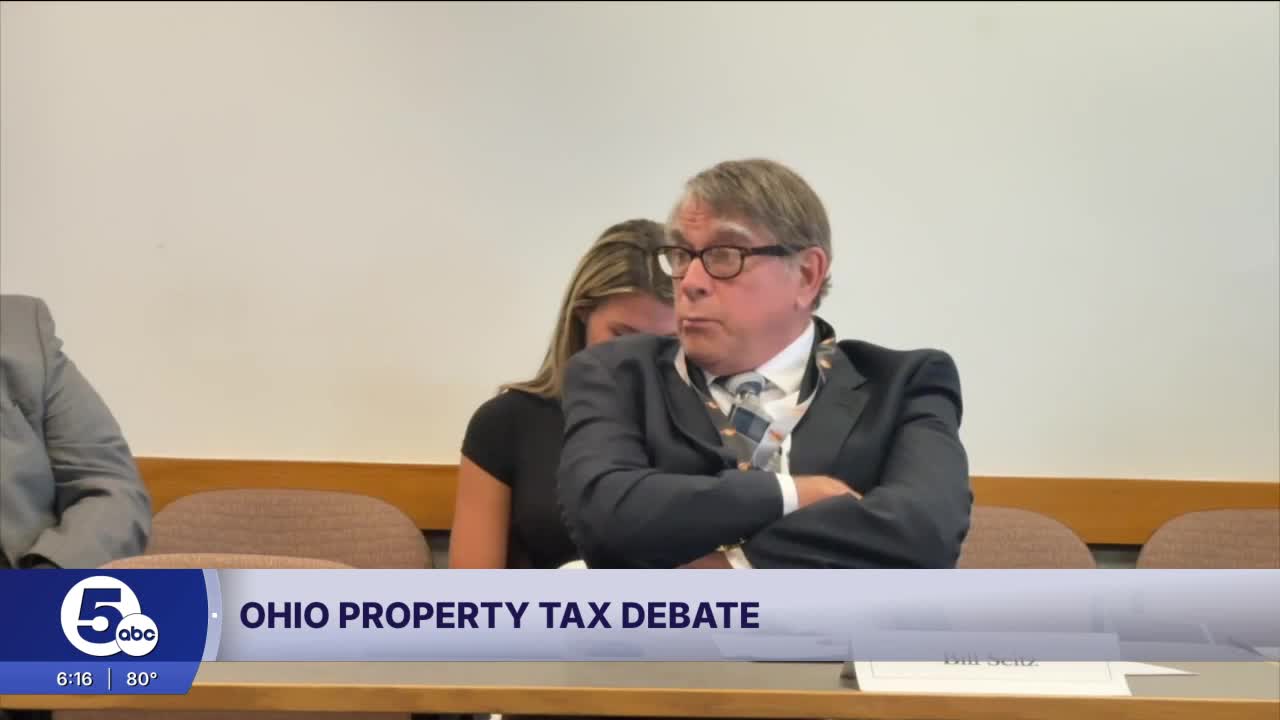COLUMBUS, Ohio — Ohio's property tax working group met Thursday, where superintendents fought against county officials who were pushing to take money away from school districts in order to provide property tax relief.
With property taxes continuing to climb, Ohioans like Brian Massie have been begging lawmakers for some relief.
"The legislators are doing nothing to address the injustice of taxing people out of their homes," Massie said.
And the clock is ticking for solutions.
The state’s new property tax reform group met again to discuss initial thoughts, evaluating each of the Republican legislators' proposals to decrease taxes — all of which could impact schools.
RELATED: With possible veto overrides looming, Ohio property tax group meets
“We don't think that people realize what's on the line,” said Stephanie Starcher, the superintendent of Fort Frye Local Schools.
The members discussed a myriad of options, which include:
- Idea 1: Take away some of the schools' savings, capping the carryover revenue at a certain percentage and refunding to taxpayers anything above that.
- Idea 2: Put restrictions on the ability to put emergency levies on the ballot or request an increase to a current levy. This would eliminate levy replacements on property taxes for all political subdivisions. For schools, it would have prohibited them from imposing a fixed-sum emergency levy, a substitute emergency levy and a combined school district income tax and fixed-sum property tax levy.
- Idea 3: Require that emergency and substitute tax levies, incremental growth levies, conversion levies, and the property tax portion of combined income tax and property tax levies be included in the 20-mill floor calculation for school funding purposes.
- Idea 4: Allow a three-person county budget commission to unilaterally take money away from a school's already passed levy if they find it "reasonably necessary."
- Idea 5: Similar to House Bill 186, this would limit property tax increases via an inflation cap. It authorizes a tax credit for owners of property in a school district on the 20 mill floor.
In the two-year state operating budget, DeWine vetoed the levy restrictions. In July, the House narrowly passed an override to it. This one is detrimental, both Starcher and Dublin City Schools Superintendent Dr. John Marschhausen said.
"Either Ohio kids are going to lose a ton of money, or taxpayers are going to be paying more for the same support," Starcher said, noting that eliminating types of levies will cause schools to go to the ballot more frequently.
But group chair Bill Seitz, a former Republican lawmaker from Cincinnati, said limiting these levies would prevent unclear ballot questions that raise taxes.
"Substitute for what? The voters really have no way of knowing." Seitz said. "What the hell are we substituting for?"
Warren County Auditor Matt Nolan said schools need to be held accountable, since some are just "sitting on taxpayer money."
Lake County Auditor Chris Galloway said that this option would hurt local governments.
"If there was someone that thought that doing this was going to change the property tax situation for Ohioans, they're out of their mind," Galloway said. "This is not going to change the dollars and cents of average Ohioan voters on property taxes."
Starcher and Marschhausen tried to explain several times how schools could be hurt by several of the provisions. But Galloway and Nolan were fans of budget commissions to take money away from schools.
"Having that hammer behind us to say, 'Please lower your levies. If you don't, we will do it for you' — that has worked extremely well," Nolan said.
Hamilton County Commissioner Denise Driehaus said that this was “undemocratic.”
"If three elected officials in Hamilton County decided to overturn the will of the people, I'm going to have an issue with that," Driehaus said.
Pike County Commissioner Jeff Chattin echoed Driehaus' thoughts, reminding the working group that voters and their choices must be taken seriously.
Massie said that he wants voters to have a choice and knows the taxpayers have to pay for municipalities, but not at his expense.
"To vote for property tax levies, you're funding your own demise," Massie said.
The group will continue working and discussing policy until their deadline of the end of September.
Follow WEWS statehouse reporter Morgan Trau on Twitter and Facebook.






